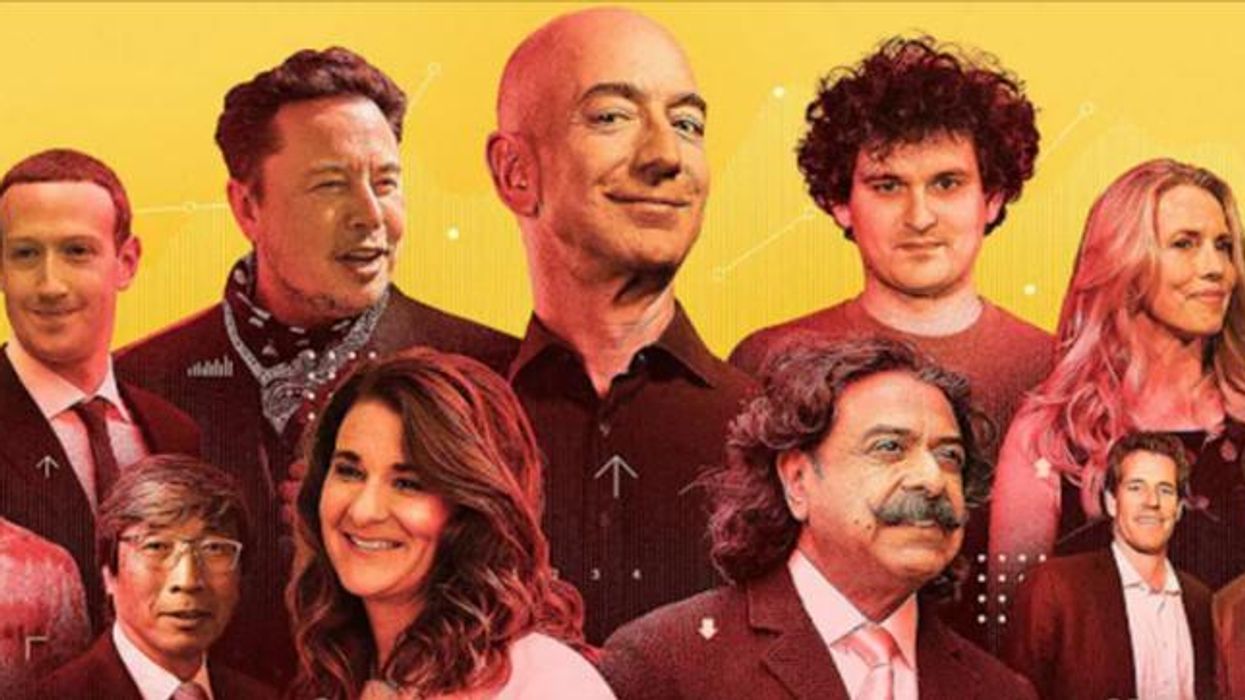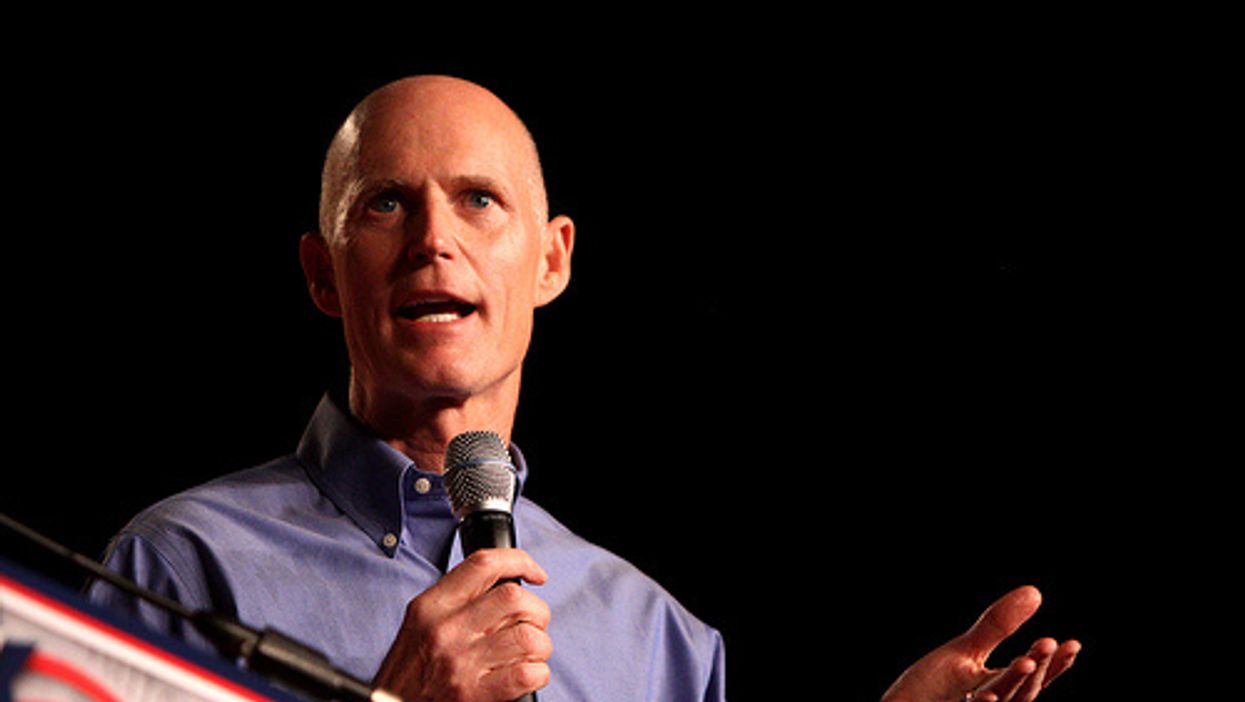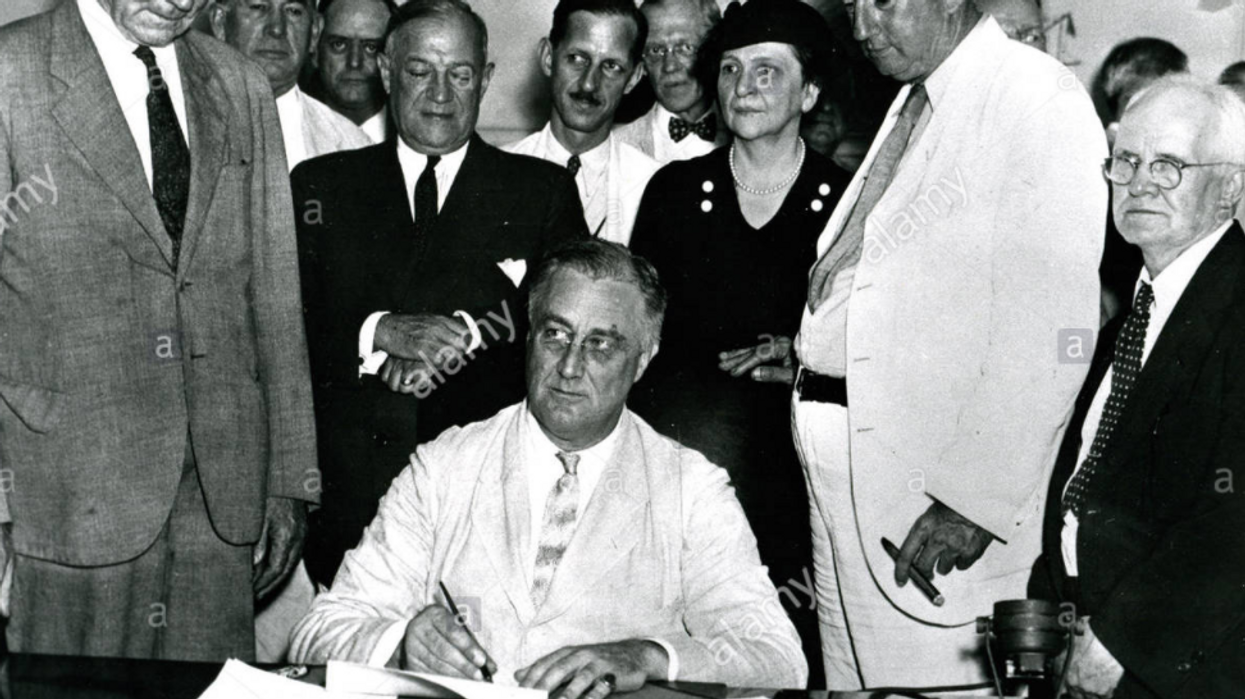Why Ordinary Americans Pay Taxes — But Billionaires Don’t
After a year of reporting on the tax machinations of the ultrawealthy, ProPublica spotlights the top tax-avoidance techniques that provide massive benefits to billionaires.
Last June, drawing on the largest trove of confidential American tax data that’s ever been obtained, ProPublica launched a series of stories documenting the key ways the ultrawealthy avoid taxes, strategies that are largely unavailable to most taxpayers. To mark the first anniversary of the launch, we decided to assemble a quick summary of the techniques — all of which can generate tax savings on a massive scale — revealed in the series.
1. The Ultra Wealth Effect
Our first story unraveled how billionaires like Elon Musk, Warren Buffett and Jeff Bezos were able to amass some of the largest fortunes in history while paying remarkably little tax relative to their immense wealth. They did it in part by avoiding selling off their vast holdings of stock. The U.S. system taxes income. Selling stock generates income, so they avoid income as the system defines it. Meanwhile, billionaires can tap into their wealth by borrowing against it. And borrowing isn’t taxable. (Buffett said he followed the law and preferred that his wealth go to charity; the others didn’t comment beyond a “?” from Musk.)
2. The $5 Billion IRA
Other billionaires used less conventional ways to avoid income, we found. Tech mogul Peter Thiel amassed a $5 billion Roth IRA, a type of account that shields income from taxes and is intended to help low- and middle-class savers prepare for retirement. Back in 1999, Thiel stuffed low-valued shares of the company that would become PayPal into the account, a maneuver tax lawyers said risked running afoul of IRS rules. (It’s not clear if the government ever challenged the move.) He set himself up to reap billions in untaxed gains. (Thiel did not respond to questions for the original article.)
3. The $1 Billion Parlor Trick: Turning High-Tax-Rate Trading into Low-Tax-Rate Income
Even when tech billionaires do show income on their tax return, they tend to pay relatively low income tax rates. That’s because of the type of income they have: Gains from long-term investments, such as from stock sales, are taxed at a lower rate. But what do you do if you’re making over $1 billion every year, and it’s largely from short-term trading? Do you just accept that you’ll pay the higher rate on all that income? As we reported this week, Jeff Yass, head of one of the most profitable firms on Wall Street, did not meekly accept this fate. Instead, his firm, Susquehanna International Group, found creative ways to transform the wrong sort of income into the right kind, generating tax savings that exceeded $1 billion over just six years. (Susquehanna declined to comment but in a court case that centered on similar allegations, it maintained that it complies with the law.)
4: The Magic of Sports Ownership: Make Money While (Legally) Reporting Losses
The tax code offers business owners a slew of methods to erase income through deductions, none more awesome than buying a sports team, as former Microsoft CEO Steve Ballmer did with the Los Angeles Clippers. It doesn’t matter whether the team is actually profitable and growing in value. It can still be a write-off. (In some cases, we found, owners could effectively deduct a given player’s contract not once, but twice. They’re allowed to take deductions comparable to those for factory equipment that loses value as it ages, even as teams almost inevitably gain in value.) That’s one reason owners tend to pay far lower tax rates than the athletes they employ, or even the people serving beer in the team’s stadium. In our story, we found a Clippers arena worker who made $45,000 a year and paid a higher tax rate than the billionaire Ballmer. (Ballmer said he pays the taxes he owes.)
5. Build, Drill and Save: The Real Estate and Oil Businesses Can Both Be Tax Havens
In certain industries, like real estate or oil and gas, the tax breaks are so plentiful that billionaires can erase their income entirely even as they grow richer. That’s how real estate developer Stephen Ross (who also happens to own the Miami Dolphins) went 10 years without paying any income tax. Ross said that he followed the law. Another mogul, this one in the oil business, managed to tap a near bottomless well of write-offs via one of the biggest oil spills in history. (The mogul’s representatives did not respond to requests for comment.)
6. Even a Billionaire’s Hobbies Can Pay Off at Tax Time
Deductions from hobbies and side projects, which the ultrawealthy can structure as businesses, are another fun option. For some billionaires, it’s race horses: We found that six owners of thoroughbreds at the 2021 Kentucky Derby had taken a combined $600 million in tax write-offs on their horse racing operations. For others, like Beanie Babies founder Ty Warner, it’s luxury hotels. The billionaire splurged on a couple of landmark Four Seasons locations and then went 12 years without paying any income tax. (Representatives for Warner did not respond to requests for comment.)
7. Think Your Taxes are Too High? Change the Tax Laws
Sometimes, it pays to fight for a new tax break. For the billionaires who contributed millions to Republican politicians, the payoff came in the form of Trump’s “big, beautiful tax cut” for passthrough businesses. We found the change sent $1 billion in tax savings in a single year to just 82 ultrawealthy households. Some business owners also boosted their savings with a trick: They slashed their own salaries and categorized the money instead as passthrough income.
8. Why Tech Billionaires Pay Less Than Hedge-Fund Managers
With so many options to reduce taxes, the richest Americans often manage low income tax rates. We analyzed the incomes and taxes of the country’s top 400 earners, those averaging over $110 million in income per year. Overall, the group paid relatively low rates, but certain segments (tech billionaires, heirs, private equity executives) stood out even within this elite population because they were able to draw on the sorts of techniques detailed above. (Also drawing on these techniques were wealthy politicians, like the governors of Colorado and West Virginia.)
9. Brother, Can You Spare a Stimulus Check?
But the real standouts were the billionaires who reported such low incomes that they qualified for government assistance. At least 18 billionaires received stimulus checks in 2020, because their tax returns placed them below the income cutoff ($150,000 for a married couple).
10. Trust This: How Wealthy Families Pass Billions to Heirs While Avoiding Taxes
The holes in the estate tax, we found, are even more remarkable. There are well-worn ways to make sure Uncle Sam doesn’t get his cut of a fortune being passed on to heirs, and the most common is through a trust. How common no one can say, but we found evidence that at least half of the nation’s 100 richest individuals had used estate-tax-dodging trusts. In another story,we followed three century-old dynasties down through the generations, showing how they used trusts to avoid taxes, so that a fortune could pass all the way from the original early 20th century tycoon to, for example, the great-great-granddaughter who recently collected $210 million before her 19th birthday.
Reprinted with permission from Propublica.




